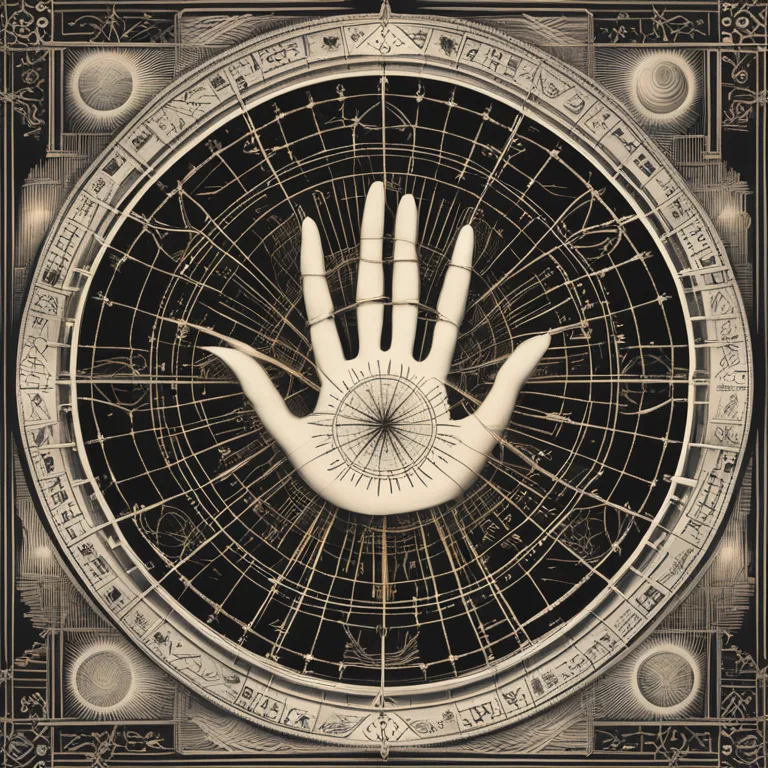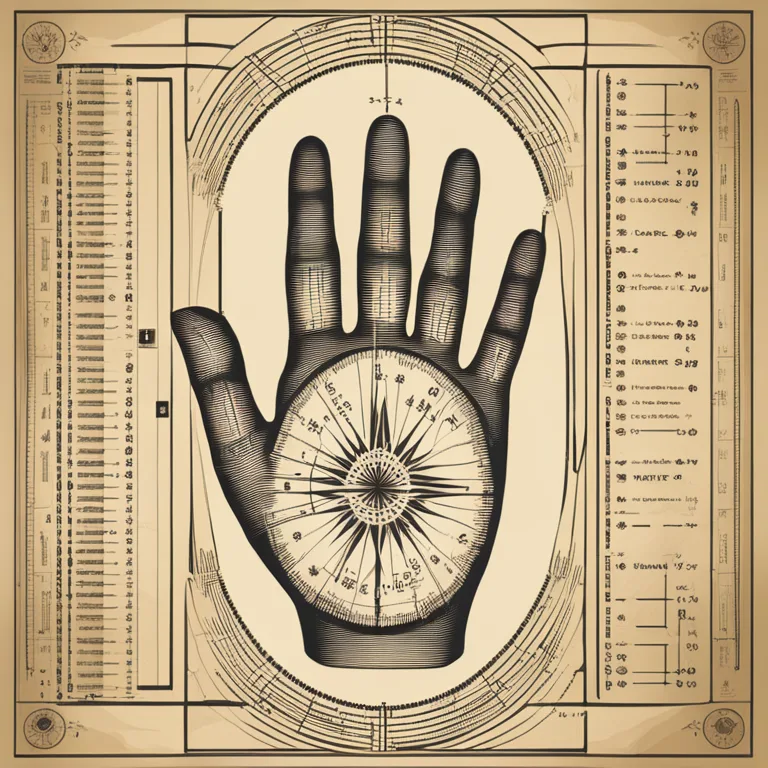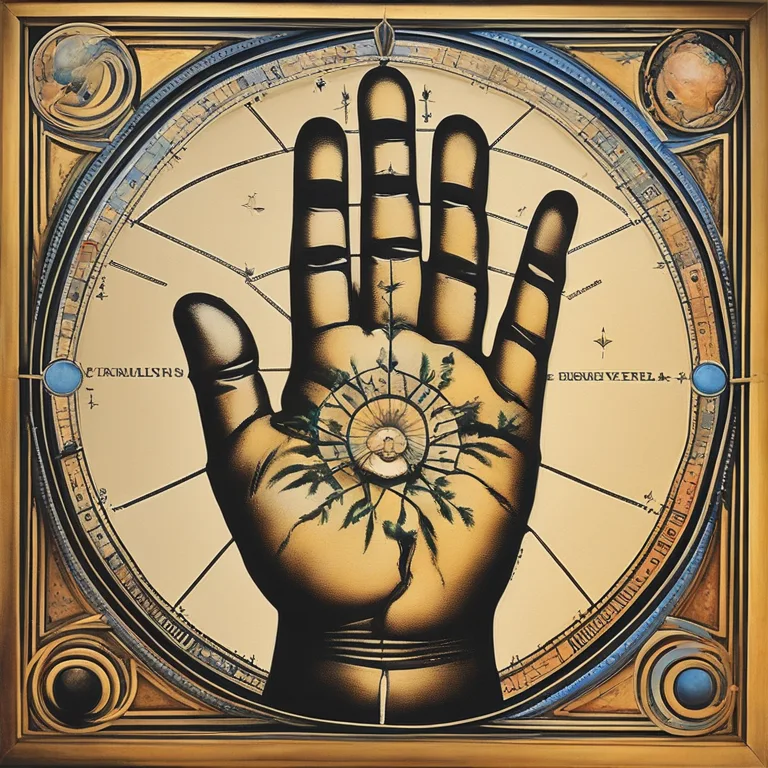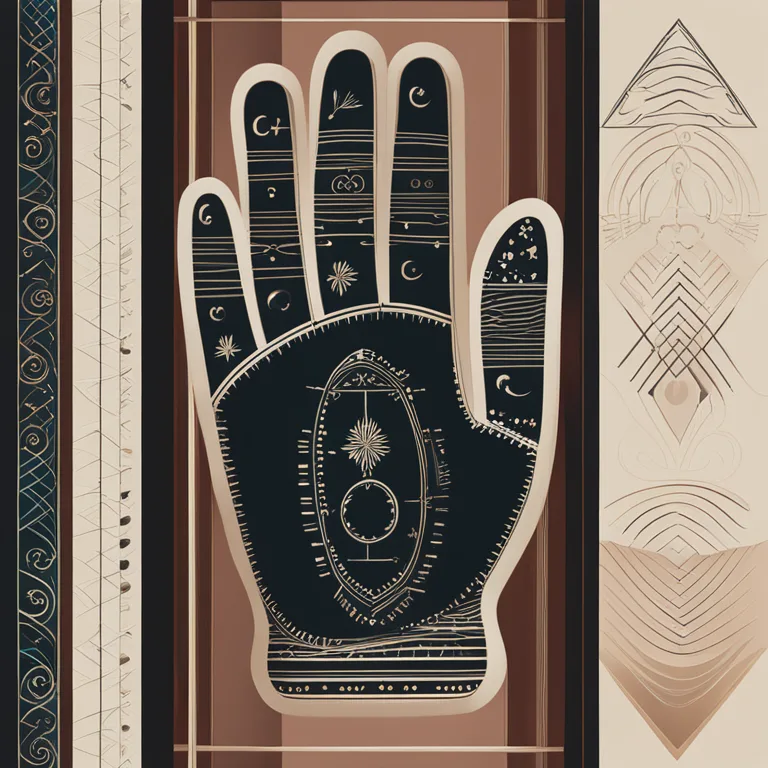
The Palmistry Guide: Interpreting Lines and Shapes
Delve into the secrets of your palm with our comprehensive palmistry map guide, revealing the mysteries behind lines and shapes.
article by Nora Pennington
Introduction to Palmistry Maps
Have you ever looked at the lines on your palm and wondered what secrets they hold? Palmistry, or chiromancy, has been a form of divination for thousands of years, offering insights into one's personality, future, and health. A palmistry map serves as the cornerstone for interpreting these enigmatic lines and shapes, each representing different aspects of life. In this article, we will guide you through the essential features of palmistry maps, helping you to gain a better understanding of this ancient practice widely recognized even in the year 2024.

The Major Lines and Their Meanings
Traditional palmistry focuses on the three major lines found on almost every hand: the heart line, the head line, and the life line. The heart line reflects emotional stability and romantic perspectives. The head line represents intellectual tendencies and communication styles. The life line, often mistaken as a predictor of lifespan, actually indicates energy, vitality, and major life changes. Understanding the course and depth of these lines is key for any novice palmist eager to discover more about themselves and others.

Significance of Minor Lines
Beyond the primary trio, numerous secondary lines contribute to the palm's narrative. The fate line, for instance, is tied to life path and career successes, while the sun line showcases potential fame and fortune. Not everyone has these lines, which can make their interpretation even more intriguing. A proficient palm reader must consider the absence of these lines just as much as their presence, adding layers to the individual's life map.

Mounts and Their Psychological Imprints
The fleshy pads on the palm, known as mounts, correspond to different planets and are tied to specific personality traits. The Mount of Venus, for example, highlights one's affectionate nature, whereas the Mount of Mercury points to communication abilities. These mounts can be flat, raised, or prominent, each variation offering a clue to the individual's temperament and life experiences. Analyzing the mounts provides a deeper insight into an individual's innate tendencies and potential.

Decoding the Unique Markings
Not all palmistry maps are linear; various unique markings such as crosses, stars, and triangles can also be significant. These symbols may indicate momentous events or special talents. A star on the Mount of Apollo, for instance, might suggest a flair for the arts, while a cross on the Jupiter mount could signify leadership qualities. Recognizing these markings requires careful scrutiny and a comprehensive understanding of their potential outcomes.
Palmistry in the Digital Age
In 2024, palmistry adapts to the digital world. Online resources, apps, and interactive maps offer new ways to learn about palm reading. With technological advancements, individuals are now able to scan their palms using smartphones and receive instant analyses. Nevertheless, the human touch remains crucial; experienced palmists are irreplaceable as they bring intuition and context into the interpretation, blending ancient wisdom with modern convenience.
The Future Path of Palmistry
The art of palmistry continues to evolve, captivating those who seek self-knowledge and foresight. Whether used for self-reflection or entertainment, the practice remains a topic of fascination. As we look to the future, it's clear that the palmistry map will continue to be a tool for unlocking the mysteries of the self, shaped by both tradition and the digital landscape of the 21st century.
Published: 1/3/2024
Modified: 1/3/2024
More predictions
Come back here soon to learn more about yourself and your future


Exploring The Secrets of Palmistry
Delve into the ancient art of palmistry and discover how the lines on your hands can mirror the pathways of your life and fate.


The Art Of Palmistry Readings
Delve into the mystical world of palmistry and discover how reading palms can offer insights into your personality and future.


The Secrets Of Palmistry Revealed
Delve into the ancient art of palmistry and learn to read the stories etched in the lines of your hands.